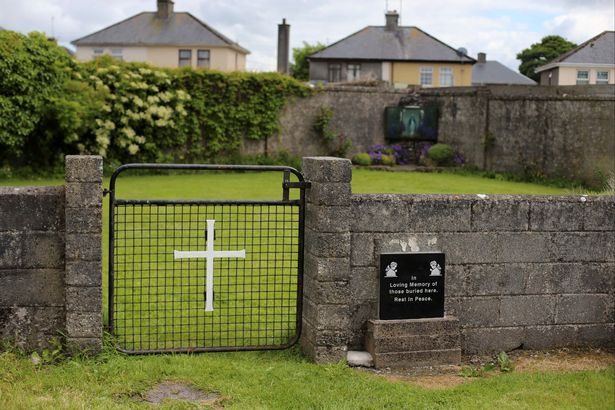Many Irish Christians will have felt sadness and sympathy when Cardinal Desmond Connell died last month. While secure in his convictions, he was faced as Archbishop of Dublin with mounting difficulties, to which past practices provided few answers.
He bore his office with courtesy and dignity, and tried to carry out his responsibilities to the highest standards. It is nearly impossible to stand steadfast in a howling storm, even assuming that were the right response, and, as we are experiencing today, such weather events are recurring with increasing frequency.
I met Desmond Connell on several occasions, mainly social. He was always supportive of the peace process, in which the Church played a vital role. I sat beside him at a State dinner in Dublin Castle for President Mário Soares of Portugal on June 2, 1993, when Albert Reynolds was Taoiseach.
A short note of the conversation at the time states: “We soon discovered a mutual interest in France. He quizzed me on yesterday’s bicentenary, and while it was clearly some event in the French revolution I couldn’t put my finger on it. It was the fall of the Girondins. He said the French revolution had had a bad influence on the modern state in abolishing intermediary powers (an idea derived from de Maistre). He had also studied Descartes and Malebranche.”
Reconstruction
Unfortunately, the Taoiseach’s speech at the banquet, which I would have edited, referenced the famous 18th-Century Portuguese statesman and Enlightenment figure, the Marques de Pombal, who supervised Lisbon’s reconstruction after the devastating earthquake of 1755, but who also, following a failed assassination attempt on the king in 1758, banned the Jesuits from the country, which led by chain reaction to their suppression by Pope Clement XIV under pressure from the Bourbon powers in 1773 (except in Prussia and Russia, where the cynical pragmatism of Frederick the Great and Catherine the Great trumped irreligion).
The order was promptly restored by Pope Pius VII on his release from French captivity after the fall of Napoleon in 1814. Connell protested that the Taoiseach would not have the slightest idea about Pombal. I definitely experienced a belt of the crozier!
It was striking, even shocking, to find in French private and public papers of the 18th Century the animus against the Jesuits even amongst many of the élite that were educated by them, which was partly a resentment of their influence in the final years of Louis XIV, who persecuted not just the Huguenots but the Jansenists. I have always felt that there are parallels to Ireland today, where resentment against the Church mostly relates to the power it once exercised increasingly long ago, the underside to which continues to be uncovered.
As a sometime French historian, I could not but smile, when two or three years previously Archbishop Connell had stated in an interview with The Irish Times that his model for Church-State relations was such as existed in France before the revolution. Did he ever consider the occasions in the 18th Century when the inflexible Archbishop of Paris Christophe de Beaumont was ‘exiled’ by Louis XV to his country property in an attempt to keep peace between an ultra-montane Church leadership and Jansenist-sympathising magistrates in the Parlement of Paris, whom the king needed to register and implement his laws?
One of the truest lines written was by Fr Micheál Mac Gréil in his 2011 book Pluralism & Diversity in Ireland: “One of the functions of leaders (political, religious, business, etc.) is to become scapegoats for major failures in society.”
Fate
That unfortunately was the fate of Cardinal Connell in relation to child sex abuse scandals within the Church, now amplified by the scandal of the mother and baby homes on top of the Magdalen Laundries. As any student of French revolutionary upheavals would know, an order of things underpinned by religious and social consensus can change drastically in a short space of time to being regarded as deeply pernicious, with plenty willing to cry ‘à la lanterne’, metaphorically speaking, at individuals and institutions deemed to blame.
Who gave the Church so much responsibility for running and policing large parts of the social order, if not the State and society? Was the Church not part of society, rather than in any meaningful sense separate from it? Even before independence, the Irish Parliamentary Party (IPP) in 1901 successfully resisted attempts under a Bill to amend the Factory Acts to subject the Magdalen Laundries to inspections, on the grounds expressed by Willie Redmond MP that “no scandals had occurred in these institutions; no such scandals could occur”, and that the owners could not continue to operate them, if they were subject to government inspection. (Indeed!)
In 1909, in a fit of righteous bourgeois parsimony pre-Home Rule, the IPP also successfully lobbied to exclude laundry inmates from eligibility for old-age pensions.
Irish governments post-1922 carried on in similar vein for a long time. Evidence of scandal, when known or believed, was, with rare exceptions, suppressed by all concerned.
Public focus is concentrated on those who ran mother and baby homes and other such institutions, on the unfortunate inmates and on babies who died prematurely, and who apparently did not need a father or a mother. Mothers and babies were too often treated as lives less cherished. Nevertheless, there must have been some caring souls. How many fathers, who abandoned girls they had made pregnant and who provided for neither mother nor a sickly child, have come forward belatedly to accept any responsibility? How are such people let off the hook?
Apart from struggles now being commemorated, the world of early to mid-20th Century Ireland, where large and impoverished families were often crowded into one or two rooms, is unimaginably distant. The Church does and must play its full part in repairing the damage, but it should be wary of rapacious forces who want to leverage the scandals to execute a second ‘dissolution of the monasteries’.


 Dr Martin Mansergh
Dr Martin Mansergh
